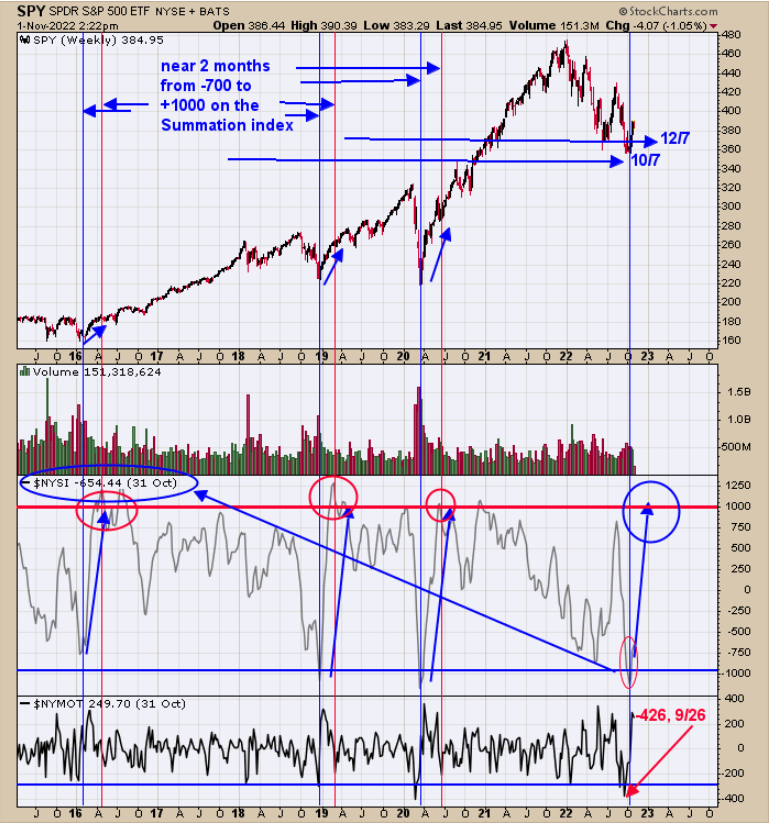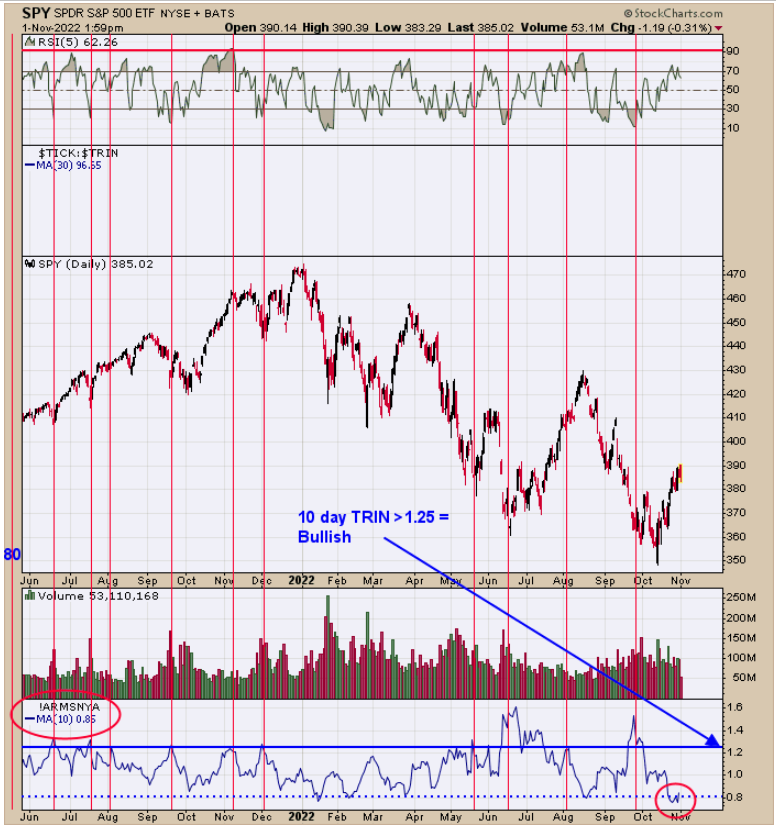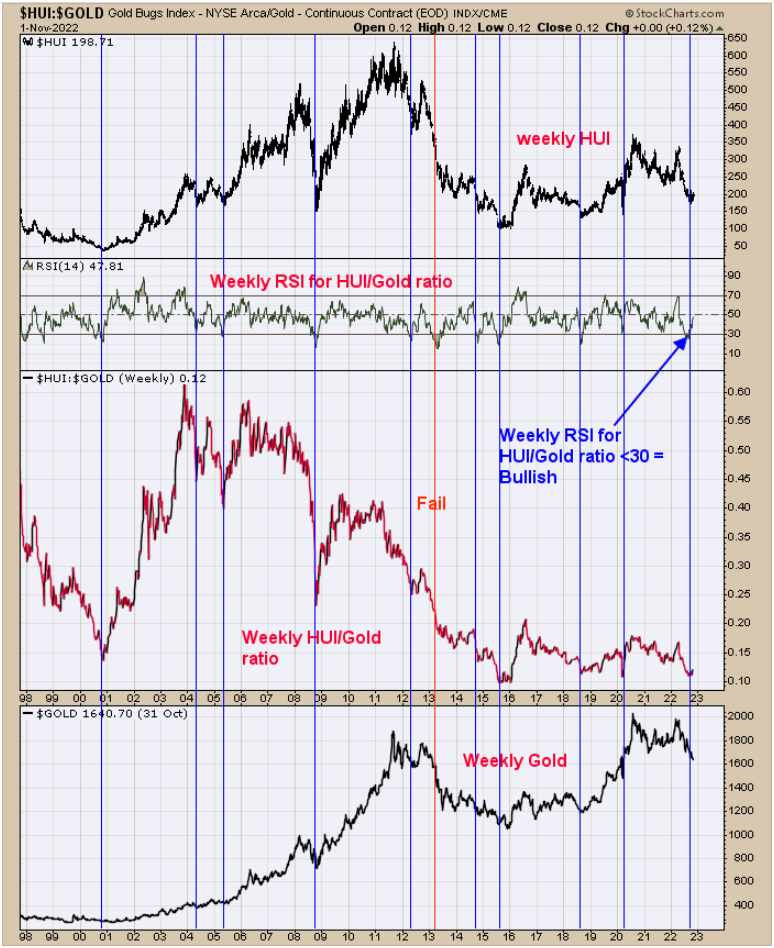SPY: Conflicting Indicators May Produce Sideways Pattern Into November 8 Elections
2022.11.02 12:34
[ad_1]

- SPX Monitoring purposes: long SPX on 10/10/22 at 3612.39; sold 12/13/22 at 3669.91 = gain 1.59%.
- Monitoring purposes GOLD: Long GDX on 10/9/20 at 40.78.
- Long Term SPX monitor purposes: Neutral

Intermediate-term lows have formed when the NYSE McClellan Summation index falls below -700 (Check) and then rallies to +1000 in around two months. The Summation index traded below -1000 on October 7 and stood at minus 654 yesterday. The Summation index would need to rally to +1000 around December 7, which is just a little over a month away. The 10-day TRIN closed yesterday at .85 (page 2) and closer to a topping area than a bottom area.
If the Summation index doesn’t reach +1000 by early to mid-December, then most likely, another decline is coming that may break to new lows. Things may change for the better if panic shows up near term, and the election possibly could do that; if panic doesn’t show up, then unlikely a rally will form, and the Summation index will not reach +1000.

We have been showing when the 10-day TRIN closes
Current 10-day TRIN comes in at .85 and is near a topping area than a bottom area. As we have said in the past, panic is needed for a rally to develop, and the TRIN above 1.30 shows panic is present, and the more days above 1.30, the longer lasting the rally. Seasonality-wise, the bullish month of the year is November. So we have a 10-day TRIN near bearish levels and bullish seasonal November; this fight of indicators may produce just a sideways pattern going forward, possibly into the election of November 8.

We have shown this chart is from the past and is updated to the current time. The middle window is the weekly / index, and the window above is its RSI. Lower-term lows have formed when the weekly RSI for the HUI/Gold index falls below 30 and then turns up. The last signal came in late August. These types of signals are rare, occurring once every couple of years. There have been eleven signals since 2000, with one failure in 2013, which works out to a 91% success rate. The ten signals that did work out were all longer-term buy signals which, some last several years.
[ad_2]
Source link








